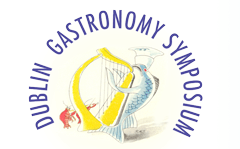Start Date
29-5-2024 11:30 AM
End Date
29-5-2024 11:45 AM
Description
This paper analyzes food as a memory device in the novel Doña Flor y sus dos maridos by the Brazilian author Jorge Amado. Set in San Salvador du Bahía in northern Brazil, the novel follows Doña Flor after her husband Vadinho dies. Food and drink – considered here as folkloric forms – play a central role not only in her exploration of memories of her husband but also in the broader bahiana society with its mix of different ethnicities (African, indigenous, European). Drawing on Felix Coluccio’s and Dan Ben-Amos notions of folklore and literature and Arjun Appadurai’s exploration of the social aspects of food, this paper focuses on the intersections of food, memory and tradition. My analysis centers on the characters: how they are “made” through food, re-enacting their roles and constituting their social and personal identity (pleasure and leisure, sensual enjoyment, excess and taboo). The meals in the text are a fundamental way to portray Bahía and its customs. Food explores the bahiano spirit in depth; the everyday and the magical, religion and the supernatural. Vadinho’s funeral happens during the ritual celebration of Carnival and this dual context offers an ideal frame to observe food (including coffee and cachaça) creating symbols and meaning as it circulates.
Creative Commons License

This work is licensed under a Creative Commons Attribution-NonCommercial-Share Alike 4.0 International License.
DOI
https://doi.org/10.21427/4p4n-he07
Included in
Folklore Commons, Food Studies Commons, Latin American Languages and Societies Commons, Latin American Literature Commons, Modern Literature Commons, Other Arts and Humanities Commons, Other Languages, Societies, and Cultures Commons, Other Spanish and Portuguese Language and Literature Commons, Social and Cultural Anthropology Commons
Food and Memory in Literature: A Folkloric Approach
This paper analyzes food as a memory device in the novel Doña Flor y sus dos maridos by the Brazilian author Jorge Amado. Set in San Salvador du Bahía in northern Brazil, the novel follows Doña Flor after her husband Vadinho dies. Food and drink – considered here as folkloric forms – play a central role not only in her exploration of memories of her husband but also in the broader bahiana society with its mix of different ethnicities (African, indigenous, European). Drawing on Felix Coluccio’s and Dan Ben-Amos notions of folklore and literature and Arjun Appadurai’s exploration of the social aspects of food, this paper focuses on the intersections of food, memory and tradition. My analysis centers on the characters: how they are “made” through food, re-enacting their roles and constituting their social and personal identity (pleasure and leisure, sensual enjoyment, excess and taboo). The meals in the text are a fundamental way to portray Bahía and its customs. Food explores the bahiano spirit in depth; the everyday and the magical, religion and the supernatural. Vadinho’s funeral happens during the ritual celebration of Carnival and this dual context offers an ideal frame to observe food (including coffee and cachaça) creating symbols and meaning as it circulates.
